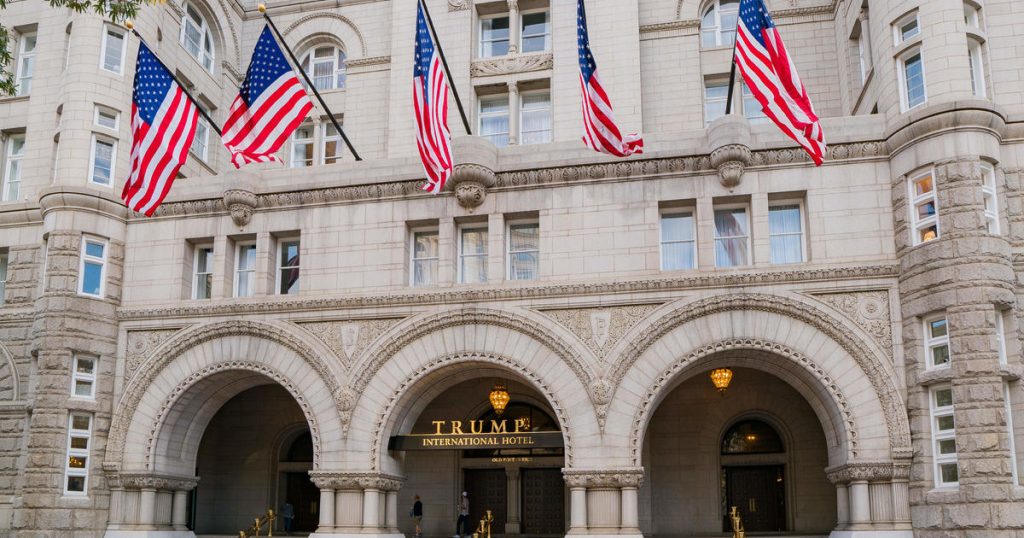In a report released by Democrats on the House Oversight Committee, it is alleged that then-President Donald Trump overcharged the U.S. Secret Service for rooms at his former hotel in Washington, D.C. during his presidency. The committee accused Trump of deliberately charging exorbitant rates, far above what other similar rooms cost, when agents stayed at the hotel as the protective detail for Trump family members. Hotel billing records show that the Secret Service paid more expensive prices for rooms at the Trump Hotel compared to other customers who reserved similar rooms on the same nights.
The records obtained from the Trump D.C. hotel, which closed in May 2022 and reopened under new ownership as the Waldorf-Astoria, were obtained by the committee after legal challenges against Mazars USA, Trump’s accounting firm. The billing information covers only 12 months of room rentals at the Trump Hotel from September 2017 through August 2018. The report cited specific instances where the Secret Service was charged significantly higher rates for rooms compared to other guests. For example, on one night in November 2017, the Secret Service was charged $600 per room while the hotel rented out other rooms for less, including to a company headquartered in China for $338.85 each.
The report also highlighted instances where rooms reserved for the Secret Service at the Trump Hotel were more than four times more expensive than the government per diem rate, representing an astounding markup of over 450%. The report argues that Trump unlawfully sought personal wealth and income by charging taxpayers for federal government services and hotel rooms at his privately owned properties. Democrats in Congress accuse Trump of violating the Constitution’s Domestic Emoluments Clause, which prohibits a president from receiving payments from the federal government other than a salary.
The findings in the report raise concerns about potential conflicts of interest and ethical breaches by Trump during his presidency. Democrats argue that Trump used his position to profit personally from government transactions and services. The committee’s investigative report calls into question the financial practices and charging policies of Trump’s businesses while he was in office. The alleged overcharging of the Secret Service for rooms at the Trump Hotel is seen as a way for Trump to benefit financially at the expense of taxpayers.
The report’s release adds to the ongoing scrutiny and controversies surrounding Trump’s business dealings and potential conflicts of interest. Democrats are calling for further investigation and potential legal action against Trump for violating the Constitution’s restrictions on presidential emoluments. The allegations of overcharging the Secret Service for rooms at the Trump Hotel are likely to reignite debates over ethics, accountability, and transparency in government, especially when it comes to interactions between public officials and private business interests.














